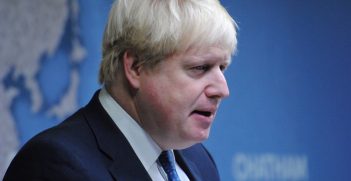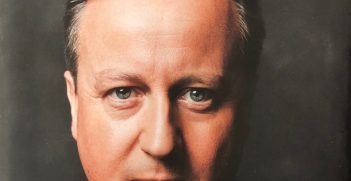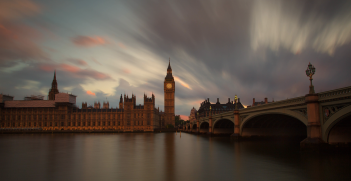Scotland’s Reaction to Brexit

As Westminster grapples with the prospect of a no-deal Brexit, it further harms its relations with Scotland.
In a very English summer with its mix of rain and squalls, the conversation has been all about Brexit, second only to the weather. As summer winds down, former Australian Prime Minister John Howard is on the radio hailing what he believes is the impending return of British sovereignty. Of course, he’s also focussed on the cricket, with Australia spared defeat in the second test only because rain washed out a whole day’s play.
Very few people have been talking about Scotland, except perhaps of Andy Murray’s brave recovery from injury and attempts at a comeback. After all, the Scots really prefer tossing the caber to cricket, and in the world’s most followed football contest, the Premier League, the Scots don’t get a look in.
All this is about to change, reflecting what former Prime Minister Harold Macmillan once memorably described as “events, dear boy, events.” These events will unravel as October 31 approaches, the day when Britain is due to leave the European Union with or without a deal, or as Mr Johnson likes to characterise it, “do or die.”
The prime event has been a realisation that Queen Elizabeth II could be dragged into a constitutional crisis. When Parliament reconvenes in the first week of September, the Labour opposition leader Jeremy Corbyn is expected to bring a vote of no confidence in the Johnson administration, with the support of Scottish Nationalists and other cross-party MPs who are unhappy about a no-deal Brexit. Johnson’s aides have made it clear that in the likely event that the vote goes against the PM, he will use the 14-day grace period before advising the Queen that he will call an election for November, after Brexit is a reality.
Another scenario, canvassed by Johnson’s outspoken senior adviser Dominic Cummings, is to prorogue Parliament. This would avoid a debate and a vote on a no-deal Brexit. There is mounting evidence of the damage “no-deal” will cause, despite almost A$10 billion now being spent on preparations for such an eventuality, the so-called Operation Yellowhammer. The full extent of the harm to British families and businesses was laid bare in The Sunday Times, which splashed a secret Yellowhammer document predicting long port delays, food and medicine shortages, increased social care costs and a hard border with Ireland that will threaten the Good Friday peace agreement. The document was dated July, despite Downing Street’s attempts claim it was out-of-date.
Johnson claims he wants to negotiate a deal at meetings with Germany’s chancellor Angela Merkel and French President Emmanuel Macron prior to this weekend’s G7 summit in France but in a letter to outgoing European Council president Donald Tusk, he mandated there could be no Irish backstop. Many MPs now believe Johnson is actively working for no-deal, even though last month he claimed that there was only a million to one chance of that happening. Even the Speaker of the House of Commons, John Bercow, said he would “fight with every breath left in my body” to prevent Parliament being prorogued or ignored.
If either of these scenarios eventuate, Buckingham Palace courtiers are concerned the 93-year-old Queen will be under pressure to intervene. It would be the first such intervention by the monarch since the controversial sacking of Gough Whitlam by Sir John Kerr, Australia’s governor-general in November 1975. The most senior members of the Royal Household have been in contact with both Whitehall and Westminster officials to try and find ways of avoiding these and other potentially impossible scenarios for the Queen.
But it does not end there, for a no-deal Brexit has also triggered a revival of another hoary old chestnut – Scottish independence. The debate on Scotland’s future within the United Kingdom has been fermenting like whisky ageing in a Highlands barrel ever since the Scottish National Party has led the devolved government in Edinburgh. It is now very much back on the agenda following a major YouGov survey of Conservative Party members. The vast majority of them white, English, middle class and over 60, found they would accept Scotland and Northern Ireland leaving the UK if that was the price of Britain’s exit from the European Union.
The Scots, who in the referendum just over three years ago voted strongly to remain in the EU, now feel doubly betrayed. With some justification they fear that Scotland will fare worst in a no-deal Brexit. Opinion polls show a modest majority would vote to quit the UK if given the choice. The chief minister and leader of the SNP, Nicola Sturgeon, is demanding a plebiscite on full independence for Scotland post-Brexit, and now has the support of some Westminster MPs, including the shadow chancellor, John McDonald. He told a fringe meeting at the Edinburgh Festival that the Scots should be given the right to decide.
This upswell of support for Scottish independence, accompanied by a wish to join the European Union as an independent country, has made another constitutional crisis more likely and it could have worse consequences than Brexit.
Gordon Brown, the first Scot to be UK prime minister since 1929 (Tony Blair apart), warns of dire consequences, arguing that the union is “sleepwalking into oblivion”,” fuelled by “a destructive, nationalist ideology deployed by Boris Johnson.” Writing in the non-aligned Sunday newspaper, The Observer, he says “growing nationalism is pulling the UK apart, driving it towards an unprecedented economic calamity, and unleashing the most serious constitutional crisis since the 17th century.”
Mr Brown invokes George Orwell who, at the end of World War II, drew a distinction between patriots who instinctively love their country, and a political nationalism that he defined as power-hunger tempered by self-deception. He clearly sees Johnson and his cohort in the latter category.
It has been widely argued that Scotland, with a population of 5.5 million, would inflict considerable self-harm if it left the UK. The pessimists quote Scotland’s budget deficit as just under 8 percent of GDP, roughly four times higher than that of the UK as a whole. Figures for fiscal 2018 show revenue per head just over £300 lower than for the UK as a whole, while spending was £1500 per head higher — this is hardly surprising given Scotland’s much smaller population.
That self-harm argument requires more rigorous examination, especially if it Scotland able to rejoin the EU in due course. By population, Scotland would, with Finland, be the 18th largest of the 28 EU countries, ahead of Slovakia, Ireland, Slovenia, Croatia and the Baltic states. It has significant manufacturing, shipbuilding and financial sectors, strong agriculture, forestry and fisheries, oil, gas and wind power, and a healthy tourism sector. In manufacturing, there is a growing electronics and high-tech capability in what has become known as Silicon Glen.
As The Guardian’s columnist and author Simon Jenkins has pointed out, Scotland has the same population as Denmark, with much the same resources, infrastructure and talent. Once it was richer by far. Today its GDP per person is £33,000 against Denmark’s $63,000 (£52,000). Mr Jenkins is sure the downward slide lies in Scotland’s long economic dependency on the UK.
England is Scotland’s major export market and there is no reason to believe this would change if Scotland were independent. Further, if Scotland found its way back into the EU, many financial services might migrate from London to Edinburgh, already a significant financial centre.
Those Tories who are relaxed about letting Scotland depart, might well regret their insouciance. Scotland plays a much greater role in British life than many in the English home counties admit. Losing Scotland would present the UK with significant strategic, cultural and financial risk.
The most serious of these is in the area of defence where Scotland has a vital role — with all three armed services growing their numbers north of the border. Of particular importance to London is Her Majesty’s Naval Base (HMNB) Clyde on Scotland’s west coast where the UK Trident nuclear program is centred. A highly controversial building program to replace the original nuclear powered, nuclear armed submarines is underway. But Britain’s expensive nuclear deterrent is opposed by the Scottish National Party (SNP), and is one of several reasons why a Conservative government will block a post-Brexit Scottish independence referendum. Should independence happen, a new home will have to be found for the fleet in England.
A very different problem involves the monarchy. The first king of Great Britain following the unification of England and Scotland was James VI of Scotland who became James 1st in 1603. Queen Elizabeth is as much loved in Scotland as south of the border, and one of the only two homes she owns in her own name is Balmoral, an estate near Aberdeen, where she spends at least six weeks each summer. She is there now, with the Duke of Edinburgh and her corgis, enjoying a round of visits from family and friends.
It’s unlikely she will be looking forward to the annual visit by the prime minister. Tony Blair and his family always stayed at Balmoral — Cherie Blair in a memoir recalled she conceived one of their children there — but the unconfirmed word among royal watchers is that Mr Johnson may only go for the day. They will certainly talk Brexit, but Scottish independence may be off the agenda.
That visit, of course, is still some weeks away, and may not happen if the Queen has to return to London in the event of a Parliamentary vote that goes against the government. Mr Johnson has more pressing immediate engagements, the most significant being a G7 leaders’ meeting hosted by the testy French president Emmanuel Macron, and attended by the unpredictable Donald Trump. This week Trump sent his envoy, national security adviser John Bolton, to 10 Downing Street with the message that he strongly supports a no-deal Brexit, authorising Mr Bolton to fast track a trade deal. “Turbocharge” has become the Tory mantra.
Colin Chapman FAIIA is a writer, broadcaster and public speaker, who specialises in geopolitics, international economics, and global media issues. He is a former president of AIIA NSW and was appointed a fellow of the AIIA in 2017.
This article is published under a Creative Commons Licence and may be republished with attribution.





